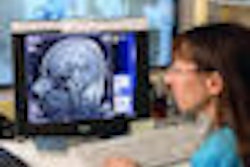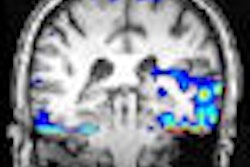Tuesday, December 1 | 3:20 p.m.-3:30 p.m.| SSJ10-03 | Room E351
Harvard Medical School researchers have found that MRI adds useful information for fetuses with ventriculomegaly, but it does not predict outcome any better than atrial diameter, except for ventricular volume, in cases of mild, isolated ventriculomegaly.Ventriculomegaly is a condition in which the ventricular system of the brain is enlarged. With MRI, clinicians can image the entire brain.
"Images can be obtained in any plane, and it allows for direct side-to-side comparison," said co-author Danielle Pier, fourth-year medical student at Harvard Medical School in Cambridge, MA. "Unlike ultrasound, there is no shadowing from bone, so that the entire parenchyma can be visualized. This allows for improved visualization of cortical migrational abnormalities like polymicrogyria."
In the study, 318 fetuses were enrolled prospectively after a diagnosis of fetal ventriculomegaly by ultrasound. The fetuses received fetal MRI with 2D measurements that included the ventricle at the level of the atria and frontal horns, 3D volumetry of supratentorial parenchyma and lateral ventricles, parenchymal thickness, and the presence of other central nervous system anomalies.
MRI provided additional anomalies that ultrasound did not detect in 72 of 318 (23%) cases. In 14 of 171 (8%) cases of isolated ventriculomegaly on ultrasound, MRI changed the diagnosis to ventriculomegaly with associated anomalies.
"In pregnant women whose fetuses are diagnosed with ventriculomegaly, we would recommend that they receive a fetal MRI to assess for associated central nervous system anomalies that may be difficult to visualize on ultrasound," Pier said. "If the presence of other central nervous system anomalies is found on MRI, this information is useful for counseling the parents about potential neurologic outcome."
The study also found that the presence of associated central nervous system anomalies was predictive of live birth. Forty-three of 117 (37%) cases were either terminated or did not survive.
While MRI adds information regarding associated central nervous system findings in fetuses with ventriculomegaly, the "MR indices generally do not add to the prediction of outcome compared to atrial diameter," the authors wrote. "Further studies are needed to explore if there are combinations of MR indices that are best predictive of outcome."


.fFmgij6Hin.png?auto=compress%2Cformat&fit=crop&h=100&q=70&w=100)





.fFmgij6Hin.png?auto=compress%2Cformat&fit=crop&h=167&q=70&w=250)











